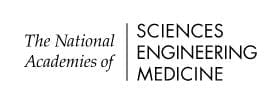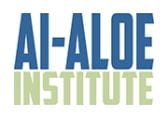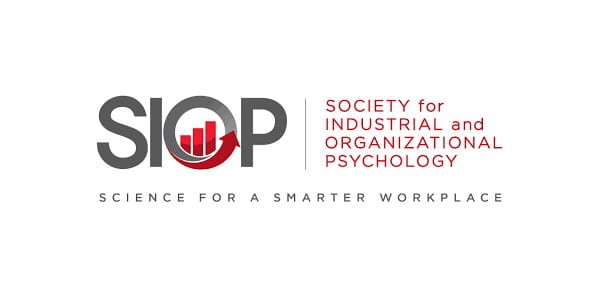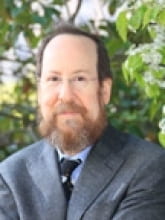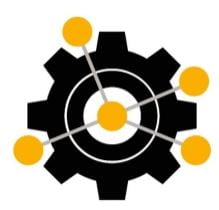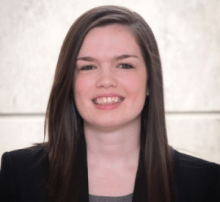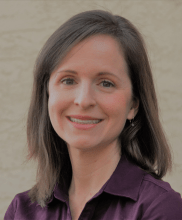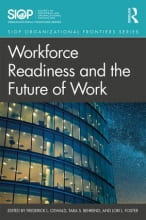For more information, please follow the link: https://www.nationalacademies.org/event/01-13-2022/human-ai-teaming-state-of-the-art-and-research-needs.
Category: News & Events
Georgia Tech headquarters NSF AI Institute for Adult Learning and Online Education (ALOE)
Researchers and experts from Georgia Tech, Arizona State University, Drexel University, Harvard University, Georgia State University, the University of North Carolina at Greensboro, and the Technical College System of Georgia form the new AI Institute for Adult Learning and Online Education funded by the NSF. According to the Georgia Research Alliance,” The ALOE Institute will develop new AI theories and techniques as well as new models of lifelong learning, and evaluate their effectiveness at Georgia Tech, Georgia State, multiple colleges within the Technical College System of Georgia (TCSG), as well as with corporate partners IBM, Boeing and Wiley.”
To learn more about ALOE, visit their homepage at aialoe.org.
Tara Behrend and Richard Landers join SIOP Executive Board
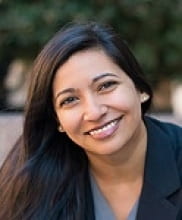
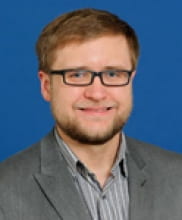
The Work Science Center would like to congratulate Tara Behrend and Richard Landers for their election to the SIOP Executive Board! Tara Behrend will be the new SIOP President-Elect, and Richard Landers will serve as Instructional and Educational Officer.
Personnel Psychology Call for Papers/Special Issue
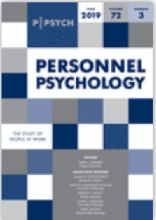
Date: Monday, September 23, 2019
Personnel Psychology has a call for papers for their special issue, entitled “What’s Age got to do with it? Age and Age-Related Differences in the workplace.” Special Issue Editors are all Work Science Center members: Margaret Beier, Rice University; Ruth Kanfer, Georgia Institute of Technology; Dorien Kooij Tilburg University: Donald Truxillo, Kemmy Business School, University of Limerick.
WSC Network Member, Phillip Ackerman, Receives 2019 Julius E. Uhlaner Award
The Knowledge and Skill Lab, led by School of Psychology Professor, and Work Science Center Network Member, Phillip Ackerman, is the recipient of the 2019 Julius E. Uhlaner Award. The award recognizes outstanding contributions in research on military selection and recruitment.
The American Psychological Association (APA) Division 19 (Society for Military Psychology) selected Ackerman and his team of Navy and Air Force psychologists for their development of selection battery and classification tools for UAS (unmanned aircraft systems) personnel.
The award will be given during the Society for Military Psychology’s business meeting at the 2019 APA convention in Chicago, on Aug. 8-11, 2019.
About the Award
The award is named after the late Julius “Jay” E. Uhlaner. The former Army Research Institute (ARI) technician and chief psychologist of the U.S. Army left a lasting legacy through his leadership and research achievements in applying psychology to military problems.
In 1976, Uhlaner received the Presidential Award for Management Improvement from President Gerald R. Ford for his work at ARI. He subsequently received a Lifetime Achievement award from Division 19 (Military Psychology) of the APA in 1995.
The Society for Military Psychology is one of the original 19 charter divisions established by the APA in 1945. It seeks to serve as the premier organization for military psychology. Society members include a growing network of psychologists and other social scientists united by their interests in applying psychological principles to a broad range of issues related to global security, peace, and stability and to improving the lives and well-being of millions of men and women who serve in the armed forces and defense agencies of nations throughout the world.
Newsletter Issue No. 4
Network Research Highlight: Type I Error Rates and Heteroscedastic Errors
Date: Wednesday, March 20, 2019
Work Science Center Network Member, Alice Brawley Newlin, recently published an article in the Journal of Modern Applied Statistical Methods examining some of the basic assumptions we make in the statistics we use to answer our research questions. Specifically, the research team used Monte Carlo simulations to explore the utility (or lack thereof) of preliminary tests of homoscedasticity in general linear models. The authors found that these tests may be unnecessary when testing for differences in independent slopes.
Tracy Kantrowitz Joins WSC Advisory Council
Date: Tuesday, February 19, 2019
The Work Science Center is overjoyed to announce that Dr. Tracy Kantrowitz has joined our advisory council.
Dr. Kantrowitz received her PhD in Industrial-Organizational Psychology with a concentration in quantitative measurement from the Georgia Institute of Technology. A SIOP Fellow, she was elected as Practice Officer for the 2019-2022 term, has chaired the Conference Program Committee (2018), and led the Professional Practice Committee, as well as serving on the IOP and TIP editorial boards and the Awards Committee. SIOP has recognized her work with the M. Scott Myers Award for applied research in the workplace and the Distinguished Early Career Contributions (Practice) Award.
Dr. Kantrowitz is Chief Product Officer at PDRI, where she consults with a wide variety of public and private sector clients on complex human capital challenges and leads integrated talent management product development. A known thought leader in the area of talent assessment, her work has focused on the assessment-technology interface on topics like computer adaptive testing, new predictor development, advances in unproctored internet testing, and mobile assessment.
In addition to consulting, Dr. Kantrowitz regularly publishes and presents her work. Recently, she co-authored (with Elaine Pulakos) SHRM’s Effective Practice Guidelines on Choosing Effective Talent Assessments to Strengthen Your Organization. She has also contributed commentaries to Industrial and Organizational Psychology: Perspectives on Science and Practice and has authored a widely-cited industry publication, the Global Assessment Trends Reports, an annual report describing HR priorities, talent practices, and uses of technology in talent management. Her work has been published in International Journal of Selection and Assessment, Human Performance, Journal of Business and Psychology, Journal of Applied Psychology, and Applied Psychology: An International Review. Read more about Dr. Kantrowitz’s work here.
Modern Teams Speaker Series
Date: Friday, February 1, 2019
By: Justin Sabree
The Industrial-Organizational Psychology program at Georgia Tech recently hosted a series of speakers on modern team research in a wide variety of contexts. Below, we briefly outline these talks.
Scott Tannenbaum, President and Co-Founder of the consulting firm, gOE (the Group for Organizational Effectiveness) discussed his experience solving issues for over 500 organizations globally, including more than 30 Fortune 100 companies. Tannenbaum has noticed that almost every organization wants to be better at collaboration and lauds teamwork. This trend has only intensified as the demands to collaborate to solve multi-dimensional problems have increased. However, despite this strong value of teamwork, many workers report that their own teams perform sub-optimally and have misconceptions about what teamwork actually is. Tannenbaum explained that many organizations view teamwork as simply getting along and consequently dissociate it from employee performance and business goals. This dissociation inadvertently downplays the importance of teamwork within an organization. To combat this problem, organizations may consider tying employees’ teamwork ability to their performance assessments and their ability to achieve business objectives.
Before team issues can be solved, organizations need to be sure that the problem truly is team-related. For instance, if a team is underperforming because of general communication issues within that team, then a team-level intervention is appropriate. However, if a team refuses to communicate due to a specific individual, such as a dismissive leader, then the solution should focus on performance management of that individual as opposed to involving the entire team. On the other hand, if many teams fail to communicate effectively, then the problem might lie at a higher level of analysis, and an organizational intervention may be necessary. Ultimately, in order for an intervention to be effective, it must be at the same level of analysis as the problem that it hopes to address.
Greg Ruark, team leader for basic research at the Army Research Institute (ARI), discussed exciting advances in teams research being conducted with the United States Army as well as the future of the field. Ruark explained that, unlike teams in traditional organizations, many teams in the Army serve on two-year rotations, and the individuals on these teams frequently move from different locations. Due to most members being new to a location, team members typically spend a larger amount of their non-work hours together than team members in traditional organization settings. As a result of this reliance on team members outside of work, maintaining positive interactions during non-task related situations is a pressing topic of current research.
Moving forward, Ruark explained that an important frontier for future teams research is how to adapt to new domains of war, such as cyberspace. Traditionally, the Army’s culture has been centralized with a strong top-down influence, but while this set up has been successful for hundreds of years, future attacks may require quicker responses than this design may allow. This may alter the nature of the multiteam system that is the Army.
Lauren Blackwell Landon, Team Risk Portfolio Scientist at NASA, spoke about cutting edge research being conducted with astronauts in preparation for the Mars Mission. This preparation starts with selecting the 12 best candidates out of 18,000 applicants. In a recent job analysis conducted at NASA, the top five needed-at-hire traits for prospective astronauts were sociability, adaptability, motivation, communication, and teamwork. Three of these traits underscore how astronauts must work and live well with others. Due to astronauts cohabitating, group living skills, such as tidiness and sleeping schedule, predict team performance among teams of astronauts much more than would be expected from traditional teams research.
Landon also explained that nuance exists in the desirability of the degree to which astronauts exhibit traits. For example, certain traits, like motivation and emotional stability, have fairly straightforward guidelines: the higher the scores on these traits, the better the team will perform. On the other hand, traits like extraversion seem to be deleterious to team performance if they are present in too high or too low of a quantity. If an astronaut is too reclusive, she may not bond with the team members. However, if an astronaut is too extroverted, he may annoy his fellow team members or fail to function optimally in a relatively isolated environment. Though NASA has a clear view on the ideal range of traits for individuals, Landon mentioned that much less is known about what the ideal composition of traits should be within a team. For instance, the teams literature does not suggest if a team with two introverted members and one extroverted member will perform differently than a team with two extroverts and one introvert.
Though gaps exist about the ideal trait combinations among team members, NASA does focus on other team composition aspects. When composing teams, NASA strategically avoids building teams that have many fault lines, such as gender, profession, or ethnicity. Despite team diversity frequently resulting in positive outcomes, too many surface level fault lines can lead to conflict and subgroup formations.
Steve Fiore, professor at University of Central Florida, spoke about the importance of interdisciplinary science teams and how to study them. Nature’s problems frequently cut across disciplinary borders. Fiore argued that researchers are well-positioned to overcome barriers that have been hindering interdisciplinary scientific research for more than 40 years. When breakdowns occur, the problem should be identified as either relating to issues with task work or teamwork. In regard to scientific teams research, task work is the actual work being completed—hypothesis generation, data analysis, writing up results—and has frequently been the focus of research. In contrast, teamwork involves the attitudinal, behavioral, and cognitive aspects of working with other people. Ultimately, breakdowns in interdisciplinary scientific research can occur due to either type of work, but some common reasons for these breakdowns are from goal misalignment and unclear boundaries.
To overcome these potential degradations in performance, Fiore presented three crucial aspects of teamwork. First, interdisciplinary teams must create a climate of psychological safety. By doing so, the team will foster increased innovation due to members feeling more comfortable to share novel ideas. Second, team members should listen actively and possess assertive communication styles. Active listening facilitates positive social relationships and clearer understanding of members’ goals and intentions. On the other hand, assertive communication mitigates the potential for members’ diverse expertise to be overlooked. Finally, teams need well-defined shared mental models, so each member knows the strengths of each member as well as a clear vision of the team’s goal.
Melissa Harrell, People Analytics Manager at Google, spoke about the history of Google’s People Operations and the pioneering teams-related research that they conduct. Despite now being well-known for their people-centric culture, founding Googlers initially questioned if team managers even mattered. A series of rigorous studies at Google supported the current science of leadership: effective managers can develop their team members and also ensure their team completes their assigned tasks. The question evolved to what parts of managing could be substituted with data analytics. With this aim in mind, People Analytics eventually created an algorithm that predicted who would be promoted, sometimes achieving up to 90% accuracy and reducing 30% of the time that managers needed to make these promotion decisions. Despite the accuracy of the algorithm and time savings, managers did not respond favorably to this change. As Harrell explained, the algorithm took away the autonomy in these important people-related decisions, and Google eventually stopped using it. This impactful moment in the company’s history led to their current stance: people should not be taken out of people decisions.
With this philosophy, data analytics supplements, but does not replace, the human decisions needed to improve Google’s workforce. Furthermore, this change in perspective has allowed the People Operation’s team to be successful in their teams research endeavors. For instance, Harrell spoke about Project Oxygen, Google’s study into what makes an effective team. Most notably, this project underscored the importance of teams being dependable, having clear structure, and feeling psychologically safe.
Workforce Readiness and the Future of Work
Date: Tuesday, January 29, 2019
Network Member, Fred Oswald; WSC Advisory Council member, Tara Behrend; and Lori Foster released the first edition of their edited book, Workforce Readiness and the Future of Work. The book features 13 chapters tackling topics including the roles of technology, education, and policy in modern workforce readiness. The book concludes with a summative and forward-thinking chapter, written by WSC Director, Ruth Kanfer, and Jamai Blivin.

